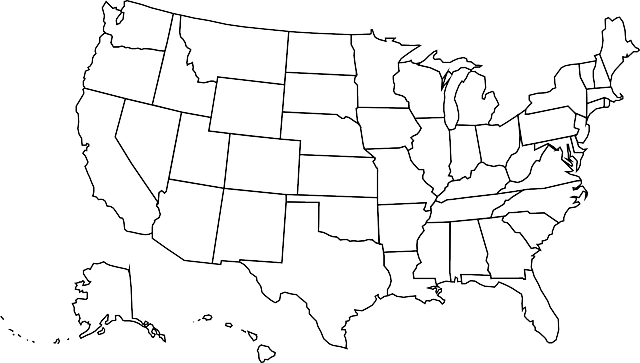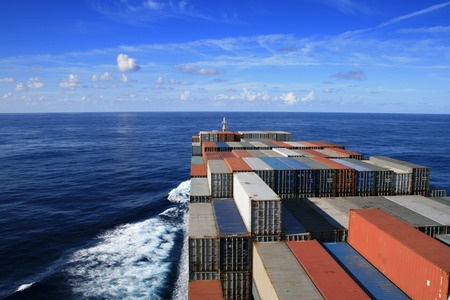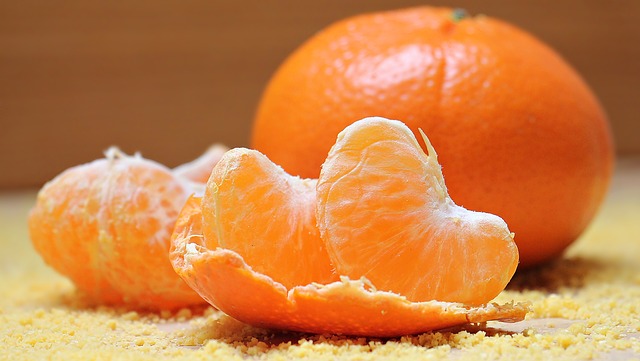'It's like a licence to print money' — Citrus industry urges Government to help preserve China trade
The citrus industry has called on the Federal Government to not “trip up” their trade with China, as Australian orange and mandarin growers enjoy the best prices in years.
Citrus Australia chief executive Nathan Hancock said the industry was experiencing boom times, with growers getting twice to three times as much for their fruit as they were five years ago.
The citrus harvest started in early May and this season demand is expected to outstrip supply, largely due to increasing exports to China.
China accounted for almost a quarter of the total 273,000 tonnes of citrus fruit exported last year.
“In 2013 we were close to zero export tonnes to China … In 2017, we exceeded 70,000 tonnes to China,” Mr Hancock said.
But Mr Hancock was concerned about the fragility of the current world order, and Australia’s relationship with our most lucrative trading partner.
“I’m not the only one in industry who is nervous about that,” Mr Hancock said.
“We can’t do anything much about those political machinations except to say to our government we don’t want them tripping things up.”
Mr Hancock said the industry’s peak body, Citrus Australia, along with growers and packers had put “a lot of work” into supplying China’s needs.
‘It’s like a licence to print money’
The on-farm protocols the Chinese government demanded, primarily to prevent pests and diseases, had been difficult to enact but the hard work has paid off.
Of the 25,000 hectares of citrus trees planted across the growing regions of Queensland, the Northern Territory, New South Wales, Victoria, South Australia and Western Australia, 9,200 hectares have been registered for export to China.
Second generation fruit grower John Hederics at Trentham, near Mildura, said one variety of pink-fleshed navel orange was particularly popular.
“It’s like a licence to print money,” he said.
The pink navel, which looks like any other orange from the outside, can fetch as much as $1,300 a tonne, Mr Hederics said.
“China’s been a big change for us in the last four years with that market opening up and the demand for our fruit, they really love our fruit, especially the pink navels,” he said.
“The Australian dollar has been good to us the last couple of years, it has really made a difference to the profitability of us growing citrus and exporting it.”
Close view of a man’s hands holding hald a pink navel orange, with a knife sliding into a section of fruit
PHOTO: Grower John Hederics says pink navels can fetch as much as $1,300 a tonne. (ABC News: Prue Adams)
Mr Hederics grows 130 hectares of citrus on his property adjacent to the Murray River, and he is clearing more land to expand the orchards to 350 hectares over the next three years; he wants to increase his production of seedless mandarins and pink-fleshed navels.
“It’s a big investment,” he said.
“You can’t just plant a tree and harvest it next year — you’ve got to wait five to seven years to come into full production, so it’s a real gamble guessing the varieties and what you should be doing.”
Mr Hederics is one of the Mildura Fruit Company’s (MFC) 130 contracted growers.
MFC is the country’s biggest single supplier to the China market — accounting for about one third of the overall citrus trade.
MFC general manager Perry Hill said the Mildura-based packing plant first shipped fruit to China in 2011, after the export trade to the United States collapsed.
“Going back ten or more years ago, the biggest market for the premium grade fruit was the US,” Mr Hill said.
“That diminished because of the likes of South Africa and Chile pushing a lot of fruit into that market, so all of a sudden we couldn’t get the premium prices we were looking for, so we turned our mind elsewhere.”
Source: http://www.abc.net.au
Author: Prue Adams
Related News & Updates
Become a Member
Join AHT
We’re the peak industry body for Australian Horticulture Trade. Joining AHT helps us advocate for you & the greater good of the industry.
Benefits OF joining
- Representing you, monitoring developments and potential threats to imports & exports
- We work on your behalf on solutions & opportunities to facilitate and maintain trade
- Be kept up to date with important issues affecting horticultural imports & exports



